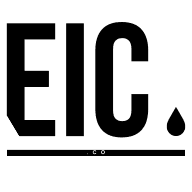How Can You Defend Editorial Choices?
In the meticulous world of editing, professionals often find themselves in the position of defending their editorial choices, be it to superiors or colleagues. We start with an Editor in Chief and CEO who uses data as a shield and end with invoking the principle of free speech. Among these expert opinions, additional answers provide a broader perspective on the steadfast commitment required to maintain the integrity of the editorial process.
- Use Data to Justify Editorial Decisions
- Uphold Journalistic Integrity Amid Controversy
- Cite Ethical Guidelines for Editorial Choices
- Emphasize Rigorous Fact-Checking Processes
- Showcase Diversity of Credible Sources
- Assert Balance for Unbiased Reporting
- Defend Editorial Choices With Free Speech
Use Data to Justify Editorial Decisions
I found early on in my editorial career that using your position as a way to convince others to write as you want them to never works. Coercion never leads to great results.
What I prefer to do is just present arguments based on our own research. I prefer to convince writers with numbers or cite previous audience feedback and comments. If something worked in the past with our readers, and it's something we can measure, then it becomes a de facto rule. That is then easy to defend when you're asked, “Why did we choose to do this?”

Uphold Journalistic Integrity Amid Controversy
There was an instance when I had to defend my editorial choices for a feature article that tackled a highly sensitive political issue. My superiors and some team members were concerned about potential backlash due to the controversial nature of the content.
I had chosen to highlight certain perspectives and data that were crucial for an unbiased and thorough exploration of the topic. During the meeting, I emphasized the importance of journalistic integrity and our commitment to presenting well-rounded, fact-checked information.
By illustrating how the chosen approach aligned with our publication's standards and would ultimately serve our readers' right to be well-informed, I successfully defended my editorial decisions. This experience underscored the value of standing by principled editorial judgment, even in the face of potential controversy.

Cite Ethical Guidelines for Editorial Choices
To defend editorial choices, one can reference the established ethical guidelines and standards that guide journalism. These universally accepted norms are foundational for ensuring integrity and objectivity in reporting. By adhering to these principles, an editorial team demonstrates their commitment to fair and ethical storytelling.
Any decision made in the newsroom is usually weighed against these benchmarks, reinforcing the trustworthiness of the publication. Whenever questioned, it is essential to remind critics of the importance of these ethics in maintaining the quality of information.
Emphasize Rigorous Fact-Checking Processes
When defending editorial choices, highlighting comprehensive fact-checking processes is crucial. A robust system that thoroughly vets information before publication underlines the reliability and accuracy of content. Such rigorous procedures involve cross-referencing data with multiple sources to verify its truthfulness.
This commitment serves as a bulwark against misinformation and adds credibility to the editorial decisions. It's helpful to share how thorough fact-checking is ingrained in the publication process.
Showcase Diversity of Credible Sources
One can defend editorial choices by demonstrating the effort to include references from a wide array of credible sources. Using a diverse pool of sources enriches the content and provides multiple viewpoints, which is crucial for comprehensive reporting. It reflects a proactive approach to avoid bias and to give a voice to different perspectives within the narrative.
This approach lends authenticity and depth to the content, reassuring the audience of the editorial team's diligence. Consider the breadth of sources consulted in coverage.
Assert Balance for Unbiased Reporting
Asserting a commitment to balanced reporting is a strong defense for editorial choices. Balance in journalism means providing equal representation to opposing views, which helps create well-rounded, unbiased content. By striving for this equilibrium, an editor ensures that the content is fair and does not favor one perspective over another.
Such dedication is fundamental to producing informative and neutral reporting that serves the public interest.
Defend Editorial Choices With Free Speech
Invoking the right to free speech can be a part of defending editorial choices, as it is a cornerstone of a democratic society. Free speech allows for a variety of opinions and stories to be told, which is vital for a free and informed public. Editors and publications exercise this right to bring forth different narratives and to challenge the status quo when necessary.
Affirming this right can reinforce the importance of editorial independence and the media's role as a watchdog. Reflect on the value of free speech in reporting.

